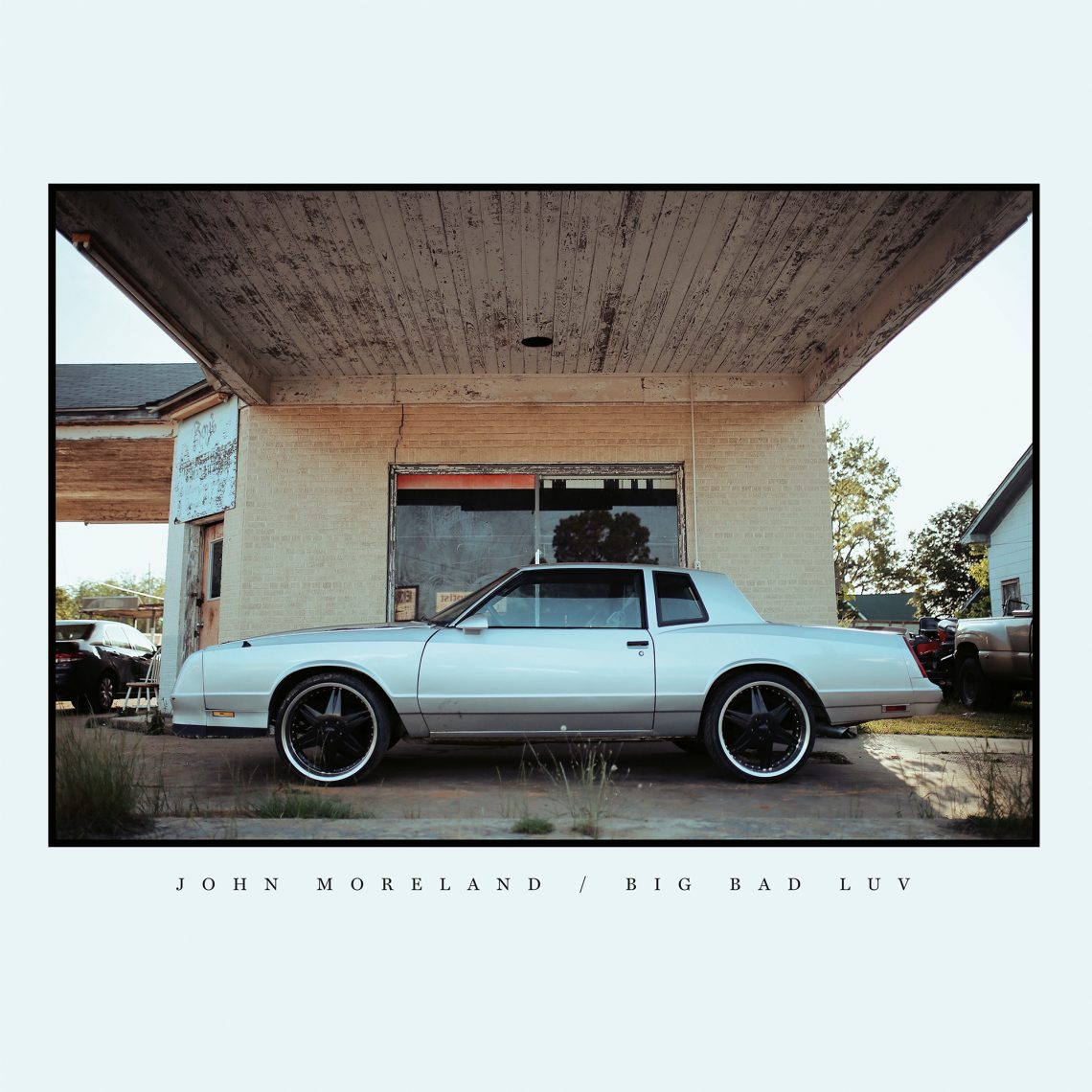JOHN MORELAND
Big Bad Luv
4AD
By his own admission, when John Moreland wrote his breakthrough second solo album, 2013’s In the Throes, his sole intent was to write devastatingly sad songs. And he did. And people absolutely loved it. The years spent cutting his teeth in the punk and hardcore scene had imbued the songwriter with an ability to write openly and honestly and to craft songs that, when paired with his threadbare, gravelly-yet-charming voice, Travis-picked acoustic playing, and sparing country-tinged arrangements, were almost lethal in their intent. The album garnered praise and acclaim from fans both old and new, a tight-knit peer group of fellow troubadours, critics, and even MSNBC host Rachel Maddow.
By the time of 2015’s High on Tulsa Heat release, Moreland was already being referred to as a songwriter’s songwriter for his ability to “break hearts sweetly” with his weary, sorrowful, heavy-hearted sad songs. The heart-wrenching, hopelessly romantic theme of the album and the praise it received perfectly served to reinforce and bolster the title. However, apart from the acclaim, Moreland was beginning to grow weary of his reputation as the saddest of sad songwriters: a reputation he believed did not truly represent himself as an artist or a person. And it’s in light of this dissatisfaction, along with a marriage broadening his outlook on love, that Moreland has delivered his most ambitious, true-to-himself solo album to date, Big Bad Luv.
Recorded at Fellowship Hall Sounds in Little Rock, Arkansas, Big Bad Luv retains the live-from-the-living-room vibe of prior albums, thanks in part to Moreland’s producing, a handful of fellow Tulsa ace players and some very talented special guests, including keyboard player Rick Steff of Lucero, Shovels & Rope, and Griffin and Taylor Goldsmith of Dawes. Primarily acoustic-based easy rockin’ Americana in nature, the album also follows and expounds on the feel and variety of Moreland’s first proper solo album, Earthbound Blues. The result is some of the his most musically ambitious work to date, proving that Moreland makes good on his intent to get back to a less sad, more self-representative sound. The opening “Sallisaw Blue,” a bluesy Red Dirt hell-raiser, is easily the rowdiest song he’s put out since the Earthbound Blues days; “Every Kind of Wrong,” “Love is Not an Answer,” and “It Don’t Suit Me (Like Before)” all slyly hint at a bit of breezy Southern rock influence; “Ain’t We Gold” nods at a laid-back J.J. Cale-styled blues; and “Slow Down Easy” delves into uplifting dobro and organ-laden gospel. On “Lies I Chose to Believe,” Steff’s plaintive piano playing is put to a train beat and paired with Moreland’s mournful singing to create a truly unique album highlight.
Lyrically, Big Bad Luv also keeps good on Moreland’s stay-true-to-himself motif and presents some of his most mature and self-aware songwriting yet. On “Old Wounds,” he takes a playful jab at and reconciles his sad-guy reputation with his new love, singing “So don’t forget to love me in damnation for the living I have earned on love gone wrong, and we’ll open up old wounds in celebration, if we don’t bleed, it don’t feel like a song.” The album features several songs that examine the nature of love between two imperfect people from a realistic but cautiously optimistic viewpoint. It’s far from a rose-colored glasses happy feel-good take on love, but it’s also a definite change of perspective for Moreland, whose breakthrough albums focused more on love of the hopelessly unrequited variety. This change of perspective has also additionally bolstered Moreland’s opinion on himself. On the album’s closer, “Latchkey Kid,” a matured, cautiously self-assured Moreland confronts the doubt and insecurity that haunted him on “I Need You to Tell Me Who I Am” as he sings, “‘Cause I’ve found a love that shines into my core, and I don’t feel the need to prove myself no more, and when I look into the mirror now I see a man I never knew that I could be.” As perfect as so many of his earlier songs might have been for soundtracking a rainy day, it’s nice to hear and feel a little sun shining through again. — CHISUM BURNETT






No Comment